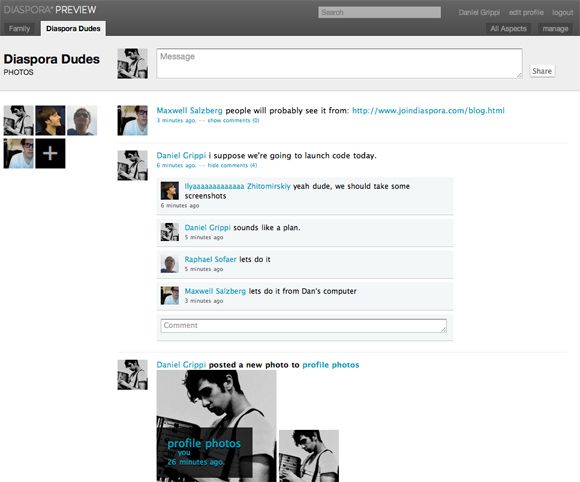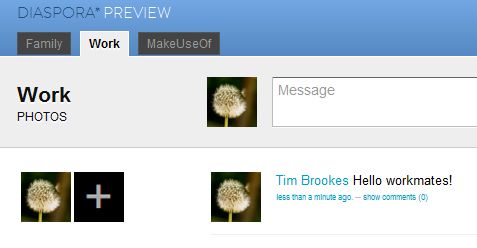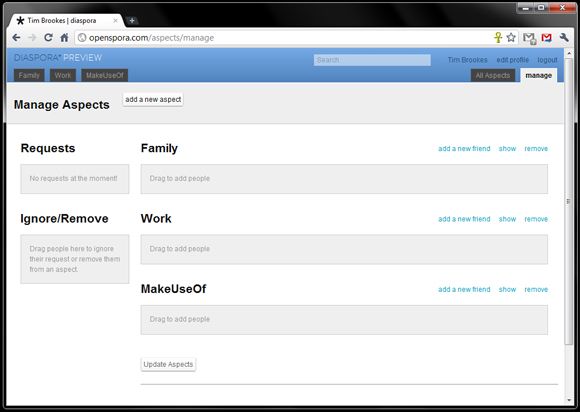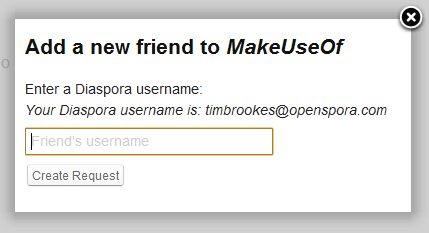For a project that received $10,000 funding within the first 12 days of its announcement, Diaspora has quite a lot to live up to. When you factor in that the funding eventually reached $200,641 and donors to the project include Facebook frontman Mark Zuckerburg (describing it as a "cool idea") then this open-source social network venture starts to sound quite exciting.
The word diaspora originated from the Greek meaning "a scattering of seeds", an apt name for any decentralised social network. In modern usage, a diaspora is defined as a group migration, but will the promise of tighter security and an open source attitude be enough to tempt people away from social media giants like Facebook or MySpace?
What's It For?
Diaspora came about when a group of New York University students from the Courant Institute of Mathematical Science were inspired by a speech about freedom and privacy online. Columbia University law professor Eben Moglen described centralised social networks as "spying for free" and the developers came up with Diaspora.
On April 24 2010, the project was announced on Kickstarter. Within a few weeks the team had a few hundred thou' in the bank, a goal to aim for and the open-source world on their side.
The developers aim to create an alternative social network, with the added option of choosing where your data is stored rather than have it sit on the same centralised server. They're also pretty big on keeping work and play separate, so your boss remains oblivious to what you get up to on a Friday night.
The project's main "opposition" (for want of a better word) is undoubtedly Facebook, which has been making headlines for a while over security lapses and privacy boo-boos. Even if the project isn't a massive success, Diaspora's direct approach with privacy and data security will hopefully further encourage Facebook and pals to improve things on their side.
So How Does It Work?
Users are able to set up their own servers (known as "seeds") to store their data, these seeds can then interact with other seeds to share photos, status updates and everything else the internet likes to do.
Not everybody needs to set up a seed, but through having these separate "hubs" you are able to choose where your data is hosted - rather than putting it straight on someone else's servers. Your data remains on the seed you choose, and you have control over what is done with it.
Data migration has also been addressed and developers have said that if a user would like to move data to another seed, Diaspora will support seamless migration from one seed to another and still work afterwards.
Diaspora is still somewhat of a business, much like Facebook. When the platform is finally launched there are plans from the developers to offer paid hosting for seeds, complete with support. Those of you interested in this thinking "No thanks, I've got hosting" probably don't care, as long as you've got support for Ruby in your hosting package.
Apart from that, it all reads a bit Facebook really. The main Diaspora interface looks like Facebook though the current version isn't exactly full of features and consumer-friendly.
The ability to separate your work life and social life is a nice touch, and highly customizable. Diaspora refers to groups of people as "aspects", and contacts are added to these as required. When you post an update online you can then choose to only post to work, family or even just your drinking buddies.
What State Is It In?
The current build is a developer preview, with a consumer alpha due in October. There's undoubtedly still a long way to go, but the open-source nature of the project should help move things along.
At the moment you can post status updates, upload photos, add contacts and edit your profile. The current build is also chock-full of security holes, but that's no surprise as it's still pre-alpha.
Developers have promised a "battery of add-on modules" are making their way to Diaspora, and these are intended to enable "any type of communication". They are also planning their own instant messenger (because you haven't got enough of those already) and VoIP integration.
Also on the to-do list is integration with OpenID, to facilitate logging in and the distribution of encrypted backups between seeds. It all sounds great, it's just not built yet.
Can I Have A Go?
If you do want a play with the current development build then you can register on Openspora and take a look around. Remember - don't go adding too many personal details and your wedding photos. This is still a preview!
Those of you who want something a little more stable and actually usable will have wait for that consumer alpha coming in October.
Diaspora is still in its infancy yet already receiving a lot of interest. If you're concerned about privacy, data protection and what Facebook are planning next then it is probably worth keeping an eye on this one. Whether it's going to be a real contender for the social networking crown remains to be seen.







